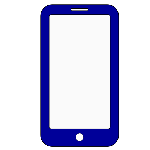 Sardar Mohazzam May 6, 2014 01:01 |
AlexKrotz - I believe, that is a good idea and can be effective. However, I am looking forward that how you will take it to the next level. During the process, I will be reviewing your proposal and will suggest you structuring of the proposal.
Best, Mohazzam
|
 Alex Krotz May 6, 2014 09:31 | Proposal contributor
mohazzam,
thank you for your comment, I'm currently working out the details of my proposal, and looking for images/animations that will accompany it nicely.
thank you very much,
AlexKrotz
|
 Tom Morris May 7, 2014 07:53 |
This is interesting. You could have a "green mode" for Siri that consumers could tturn on which would allow Siri to provide green alternative for requested searches.
This same feature could be incorporated into search engines as well. yours is ione of the more practical and somewhat easy to implement ideas I've read here so far.
|
 Samuel M. May 7, 2014 02:50 |
great way to reach more people whose standard of living distances them from the concern over climate change
|
 Paulo Borges De Brito May 7, 2014 03:34 |
Hi AlexKrotz,
I agree with Mohazzam. I would like to see your proposal going to the next level, specially the design of the app.
Best,
Paulo
|
 Doron Bracha May 8, 2014 04:19 |
Interesting idea, although I think there are already a lot of 'green apps' out there.
http://techcrunch.com/2010/08/10/top-ten-green-apps/
http://www.treehugger.com/clean-technology/more-than-100-iphone-apps-for-green-shopping-eating-travel-and-fun.html
Also note that the apps would only be used by people who'd be willing to download, install and use them. Meaning people who already have some awareness and good will to change their ways.
A quick example: some people grab a cup of coffee in a disposable cup every morning on their way to work. That is not so green, and also expensive and sometimes unhealthy. Would that app encourage them to bring a reusable mug, or to wait till they get to work and have their coffee there?..
The main factor is reducing consumption, and then reusing and recycling. If you throw a birthday party for your child at the playground, use a lot of disposables and generate a ton of waste, would such an app make you change your ways?..
My concern is that it may not be effective for most people (who don't know and don't care), but perhaps if they do have some awareness and commitment, such apps can help.
Cheers !..
|
 Alex Krotz May 8, 2014 07:18 | Proposal contributor
Hello doronbracha,
My proposal is far from complete so it is still open to alterations and improvements. That said, the ultimate goal is to use smartphones as a way for a person to view their impact on climate change, then suggesting ways to reduce it. For example, if the app can log how much time one spends in their car each day, it can give a reasonable estimate as to their impact on the climate, then suggest alternate routes, or even other means of transportation. In addition, if you can view your energy consumption at home, the app can show you how much money you spend by leaving appliances on over night, or while you are not using them. Thank you very much for your comment, i am always looking for improvements to make to the idea.
|
 Vishal Bhavsar May 10, 2014 02:13 |
This is the most effective tool to communicate the benefits of adopting sustainable lifestyle in every day life. Smartphones are the present with every individual throughout the day and nowadays you see smartphones communicating with the user.
The modules for apps could be:
a. energy
b. mode of transporation
c. waste
d. water
For example: the app should guide the user on benefits of walking or cylcing to short distances which has dual benefits of health and lower carbon footprint.
Thus this proposal has immense potential of impact on climate change. As Catalyst I would love to contribute towards building the proposition.
All the best and would wish to go through your proposal
|
 Alex Krotz May 16, 2014 09:29 | Proposal contributor
Thanks for your suggestions, I have added you to the team and will definitely include some of those ideas
Alex Krotz
|
 Vishal Bhavsar May 18, 2014 07:19 |
Hi,
One more thought came to me. Why cant you look at integrating Utility company which provides energy, water with the mobile data. This live data analytics can help individual to keep tab and also give message how much impact on climate change is happening because of their consumption.
Similarly lots of future transporation options would be linked to smart phone and it will become tool to decision making on transport option. Have a look at a report by Deolitte on future of transportation. You can refer to this report.
Link to report: http://d2mtr37y39tpbu.cloudfront.net/wp-content/uploads/2012/12/Digital-Age-TRANSPORTATION.pdf
I will keep writing.
Cheers
|
 Alex Krotz May 18, 2014 11:15 | Proposal contributor
I agree,
I think cooperating with utility companies will provide a good alternative to those who do not want an additional device to track their usage, the transportation report is very interesting and i will certainly include some of the ideas represented in it in the proposal.
Thanks,
Alex Krotz
|
 Anna Förster May 19, 2014 04:56 |
Hello,
I really like your idea and in fact, I am working as a researcher in exactly the field you are describing. From my experience with such systems, you will have three major problems bringing it to the people:
1. price will probably kill you in the first place. all those sensors to put on water tubs etc will cost too much money.
2. effort to install: it is not really easy to install a system like that. Right now, it takes at least 2 scientists to do it. For normal people, it might be inaccessible altogether.
3. Precision: even with the most advanced algorithms, the apps will not be able to deliver really satisfying results. Sometimes they will not make any sense and people will get the feeling that the system does not work or, at least, is unreliable.
We have done for example an experiment with mobility habits and automatic recognition of vehicles used over several months. We were approx. 70 % precise in recognising the right vehicle, because it is a very hard problem. People were very unhappy about the results in general and, if ames about the quality and precision of the app, said mainly: crappy, does not work at all. This is how people percept such services - they have to be almost perfect for them to work at all.
In general, there are lots of research and industrial effort going on in this direction. I would look into those to get an idea of what apps can really do and what is still out of reach. I am happy to help more, if wished.
|
 Alex Krotz May 19, 2014 12:11 | Proposal contributor
Thanks for your comment,
currently there are many tools that one can use to monitor energy use simply by plugging it into an outlet, in addition, cooperation with energy/water companies would allow you to monitor use, on the vehicle problem, smartphones with built in GPS are used to monitor running, and can automatically sense when the runner starts/stops and their speed. If this technology can be exploited to sense driving then it should be rather accurate, what tracking system were you using for the experiment?
Thank you,
Alex Krotz
|
 Ricardo Jimenez May 19, 2014 12:03 |
Hi,
I just want to add a couple of things that maybe important and usefull to the next stage of your proposal.
1. You always need to identify who will the owner of the benefits(in terms of environmental impacts) you are getting for using the apps (GHG emission reduction for example). As you mentioned that working with utilities companies might provide good alternatives to measure some impacts, these companies could ask for sharing the benefits of impact reductions. What should not happen is that Companies present those benefits as theirs, cause it will cause a double counting of the impact.
2. It will also be important to define the scope of your initiative (are you going to start with a pilot?). Even if a lot of people use smartphones, it does not mean they are aware of environmental problems in the world or that they even care about it. There should be an incentive to develop an eco-friendly behavior, for example: if you work with utilities companies, they can develop a discount on waste management fees for recycling.
I look forward to seeing the entire proposal with the adjustmens from other comments.
Regards,
Ricardo
|
 Alex Krotz May 19, 2014 02:25 | Proposal contributor
Thank you for your advice, I will be sure to address those points in my proposal, at the moment I am considering both advertising and possible tax rebates (not sure if that is viable at the moment but I'm looking into it)
Thank You,
Alex Krotz
|
 Claudia Gossow May 23, 2014 02:26 |
Great concept. I love your ideas Alex. Smartphones are being used increasingly all over the world and it would create a greater self-awareness and a reminder to each day, put in a personal bit of effort to be greener. Looking forward to how your proposal will unfold. Perhaps just bear in mind that not all individuals have access to this technology and therefore these apps will only benefit those who have the means to own a smartphone. Hope you don't mind my psychological contribution below in reference to your study (: I thought it might help you think a bit out of the box and make your study even more realistic than what it already seems.
Climate change impact to a large extent, affects those living in 3rd world, rural settings, who in turn are some of the largest contributors to greenhouse gasses and climate change in general. It is estimated that over 900 million people, one third of the global urban population, and more than 70% of urban developing country populations, now live in slum-like conditions, which are characterized by low incomes, poor housing and provision of basic services, and no effective regulation of pollution or ecosystem degradation. This number is projected to increase to roughly 2 billion by 2020. Health concerns for this group will therefore become increasingly important, which include among others heat waves, floods and storms, diseases and air pollution (Campbell-Lendrum & Corvalán, 2007).
Best of luck with your proposal Alex xxx
|
 Alex Krotz May 23, 2014 11:21 | Proposal contributor
Thank you for your suggestion, I will definitely try to tie it in some way to third world countries, possibly a program to let you contribute to charities in those countries. Recent estimates say that over 1.75 billion people in the world have smartphones, although this proposal will not immediately resolve the pollution made in third world countries, it will greatly contribute to household emissions in more developed countries, please check out my proposal in the Industry section that attempts to reduce industrial emissions and has many applications in the developing world
https://www.climatecolab.org/web/guest/plans/-/plans/contestId/1300204/planId/1305323
Thank you for your comment
Alex Krotz
|
 Claudia Gossow May 26, 2014 03:20 |
Thanks Alex, your proposal on MIP's looks very promising thus far and looking froward to how it will unfold overall. Best of luck with the rest of your Smartphone's concept (:
|
 Shannon Cosentino-roush Jun 14, 2014 02:05 |
I have to say, I really am excited by your proposal! Admittedly, I am not that 'in touch' with the presently available apps so I cannot speak to the potential duplication of your proposal, but I really do think that your concept has tremendous potential. The above comments mostly focus on the feasibility of syncing your app with other devices to track the device user's consumption and environmental impact. Of course this would be useful, but I agree with an above comment that this largely is attractive to people 1)already interested in minimizing their footprint and 2)those already making efforts to track their consumption in order to boost efficiency and save money. I think there is potential for this desire to spread to the larger public, but as was pointed out, at this point in time, there might be some hurdles that discourage the 'average' person from utilizing the app for these purposes. I am by no means trying to discourage this element of your proposal (in fact I think it is beneficial), but I simply want to point out that your app concept struck me most on an even more basic level. These days people don't have time, or they at least don't feel like they have time. We have apps to assist us in finding recipes, tracking deals, even to assess our daily happiness. Anything to help us accomplish our goals more effectively is useful. I speak for myself in saying that I wish my personal environmental ethic was developing more than it presently is, but it isn't as easy as when I was a student studying environmental policies. If there was an app that provided people with daily tips, even the smallest and seemingly obvious ones, on how to make simple lifestyle changes to live more environmentally, I think it would make it a lot less daunting for many, many people. Even better, if you could insert your location and the app would send you local suggestions on how to implement these tips that would be even more useful and change-inducing. Imagine, waking up and having your phone remind you to purchase local and seasonal produce (with a sound bite as to why it's important), followed with a series of local farmer's markets, some suggested seasonal produce and recipes (just to top it off). I think this would make small environmental changes feel more accessible and feasible to the mainstream population. Maybe it is a simpler concept,but I think sometimes we don't realize how the simplest concepts can provide such a big impact. If you further developed this concept in your proposal, I think it would make your pitch all the more intriguing. Thanks and let me know when I can add this app!
|
 Manohar Lal Baharani Jun 19, 2014 04:19 |
The idea is excellent. As regards comments of third world, smart phones are owned by the people that include people in Government, Corporate Houses, NGO's, Trusts, Foundations, Charity organizations. Once the app is developed that is convincing for concerns on leading "environmentally benign lifestyle" and gets used to it there will be many people who would increase voluntarily its outreach to third world not having smart phones. Worth waiting for the access to full proposal that is user friendly. Bests,
|
 Julie Strilesky Jul 2, 2014 04:58 |
Hi there,
I haven't read every post, so not sure if this has been said already - just to expand on your idea - apps could include, for example, closest recycling locations for various items (eg. hazardous materials), life expectancy of landfill that material will be sent too, etc. I think there is still a lot that can be done without monitors.
Best of luck!
|
 Climate Colab Aug 5, 2014 08:47 |
Judge 1: This is the most workable proposal I have read yet. Lots of people use apps to keep track of their running etc. They could well do this to keep track of their climate related behavior. I suspect someone has already done this. Has the proposer reviewed current apps and found such apps missing? This will work to change the behavior of those who are motivated enough to find and down load the app. That needs to be addressed. A problem is that many are about “apped out.” No reasonable plan for getting people to adopt is presented.
Judge 2: There are quite a number of these types of apps. These might appeal to people already interested in CC but why would wider audiences be interested.
|
 Test Test Aug 6, 2015 10:03 | |
 Alex Krotz Aug 7, 2015 02:18 | Proposal contributor |
 Alex Krotz Aug 7, 2015 02:14 | Proposal contributor
">
|
